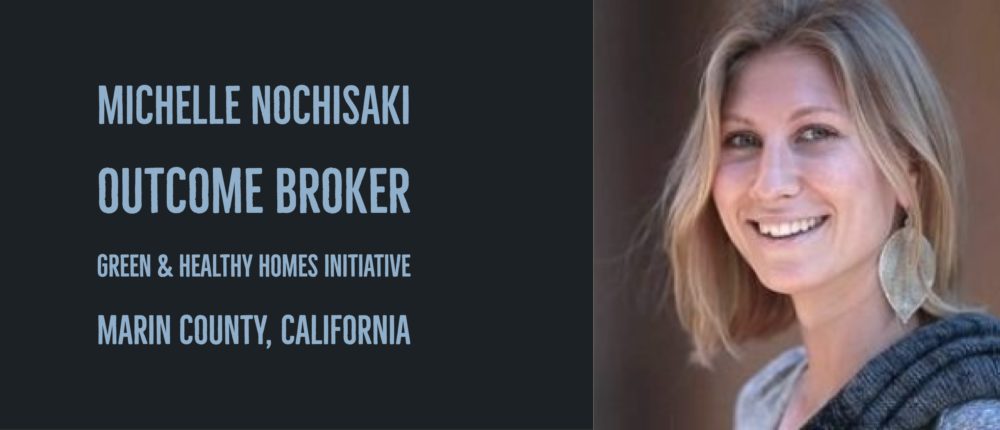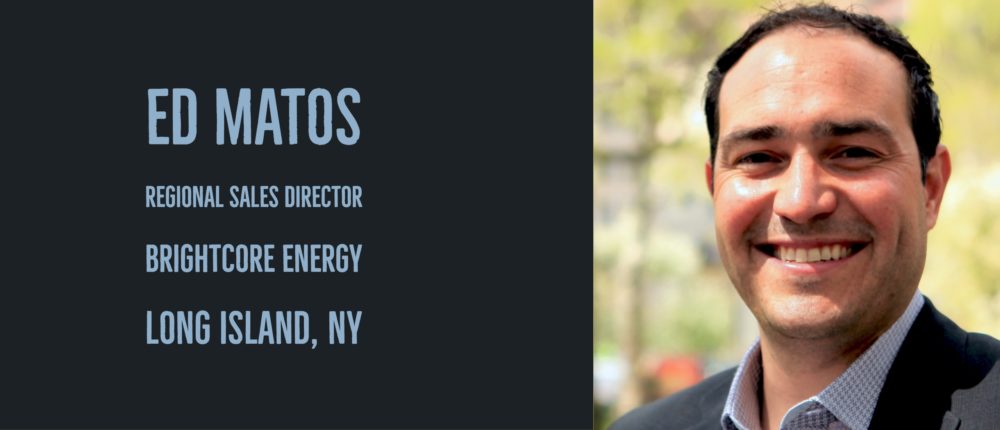 The Habitat X Fellowship is one of the most rewarding opportunities available to the up-and-coming generation of home performance professionals. As a former Fellow, I know this firsthand.
The Habitat X Fellowship is one of the most rewarding opportunities available to the up-and-coming generation of home performance professionals. As a former Fellow, I know this firsthand.
I had been in the weatherization and energy efficiency sector for just under a decade when I applied for the Fellowship in 2015, hopeful that I could leverage what I’d learned along the way to make a difference. To do that, I needed more than building science knowledge or a passion for sustainability. I needed a singular community, a strategic venue where accomplished, dedicated people gather and pool insights that illuminate the future of the energy transition in the built environment.
What happened next changed my career in profound, unexpected ways. As its name suggests, Habitat X is an intersection: of housing, culture, and environment, for sure, but also of ideas, both tried-and-true and pioneering. It’s where veterans pass treasured wisdom down to a new cohort of committed change-makers. It’s a chance to forge new enterprises, outlooks, and friendships. Above all, it’s where you’ll find the brilliant people at the center of the transformation toward sustainable housing.
It’s hard to top the experience of becoming a Habitat X Fellow, of course, but watching others step into that role always inspires me. Recently, I spoke with 2016 Fellows Michelle Nochisaki and Ed Matos, who I am privileged to call friends and colleagues, about their work and what Habitat X and the Fellowship means to them.
Q: Who should apply for the 2018 Habitat X Fellowship and what should they hope to get out of it?
Someone applying for the Habitat X Fellowship should be obviously passionate about our industry, and also driven to do more—meaning to really dive deep into either whatever arena they’re currently in, or looking to maybe jump sectors a little bit—but take their passion, learn from the folks in the room and then hit the ground running. It’s a killer support system. You gain, essentially, experience and insight from the best of the best.
Q: How did the Habitat X Fellowship impact your career?
Habitat X was really the first entry point for me to having a real seat at the table—just the style of conference, the fact of being a participant and a presenter and having a voice. Instead of being one of the masses, I was now one of the industry professionals that I had always looked up to, and I think that added to my career in a lot of ways.
Q: How did you first become involved in building performance?
I graduated from business school and decided that I wanted to be a social worker. I put my resume into a temp agency and asked them to place me anywhere that was a nonprofit organization while I was researching how to take my business education and turn that into social work. They placed me at Building Performance Institute, where I spent two weeks stuffing certification envelopes around a conference room table and learning about the organization—learning about building science, home performance, the contractors that were involved, the certifications and standards behind the certifications.
“I was like, ‘Man, if people knew about this, everyone would be in.’”
It just clicked with me: the house is a system, and if we want to build homes the right way, and if we want to improve folks’ lives who live in those homes, then we need to go about this the right way. I walked into the COO’s office with my actual resume and said, “Hey, I know I’ve been here two weeks as a temp, but what position do you have for me?” and the rest is history. I was like, “Man, if people knew about this, everyone would be in.”
Q: What does the big picture for healthy homes and home performance look like to you in 2018 and beyond, and what developments excite you most?
Health and home performance have always been tied together in my world. I think we are now at the beginning stages of having data to back it up. I think that’s extremely important because, regardless of what anyone says, data is what we should really rely on and use as the backbone of how we do the work that we do.
Because we’re a low-income program, a lot of times the clients that we work with see tremendous improvements in their health due to this holistic approach when addressing all issues in their home. Working on ways to get funders and/or medical dollars to pay for the home performance work up front because of the medical-dollar savings on the back end—that, to me, is some of our most exciting work.
Q: How did the Habitat X Fellowship impact your career?
The fellowship came at a really great time for me. I was looking for new career opportunities, and I wanted to find an opportunity that could challenge me intellectually as well as motivate me, and hopefully introduce me to new opportunities. It was a great learning experience for me to be in the same room with people that have been doing this for so long at a high level. It actually led to new business for me, which was more than I could have expected.
Q: How did you first become involved in building performance?
I was 28 at the time. I still remember the exact conversation. I was coming off years of being very focused on music and in a band, and I was not taking my career too seriously. A friend of mine, Dan Kartzman, had just come back from California, and he said, “I want to start my own company out here on the East Coast making homes energy efficient and green.” I said, “That sounds really cool! Sign me up.”
“I’ve really always appreciated that I got into an industry, not just a job.”
I’ve been in the industry eight years now. I don’t think that I necessarily wanted to be in a green industry, or that I sought it out or anything like that, but I knew I wanted to do something that mattered to me, and once I got in, I was hooked. I’ve really always appreciated that I got into an industry, not just a job.
Q: You seem to approach sales as both a science and a craft. Where did you get that perspective?
One of my beliefs is that this industry has done an incredible job of creating a foundation for building science and knowledge of energy efficient construction, but not enough of a foundation for sales. I’ve been in sales a long time, and I’ve always looked at sales as a true profession as well as a craft and art form—one that takes the same amount of training as any other craft.
I was given the opportunity to write an article for Home Energy magazine [“Why Home Performance Sales Needs a Deep Retrofit,” Winter 2016] as part of my Fellowship, in which I express a lot of my views. I told myself I was going to write a book. I haven’t quite gotten there yet. (Laughs.) I do still think it’s very much needed to have more resources for sales professionals in home performance and building performance.
###
Editor’s note: Griffin, Michelle, and Ed have recently formed the Brighter Energy Collective to support young professionals in the home performance industry. They are the administrators of the Habitat X Fellowship.




